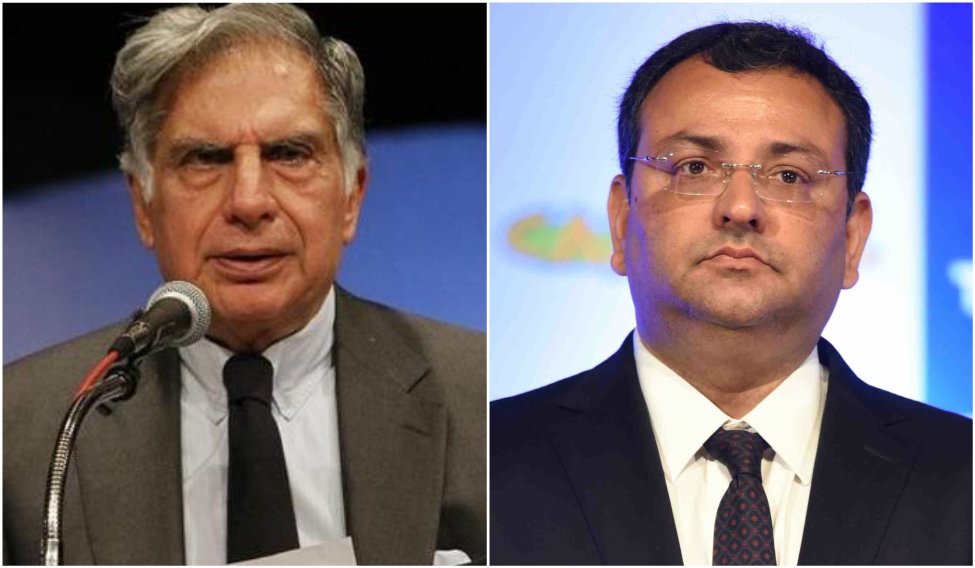The Cyrus Mistry-Tata dustup—considered the mother of all corporate battles in India (read 2017)—has fallen silent, but it did shake the very edifice of India Inc., leaving lessons for both young and old. And some sparks are still flying.
It is an ideal lesson for aspiring managers and board room honchos seeking highest levels of corporate governance. In short it means, it pays nothing to cry wolf, especially if there are enough skeletons in the corporate cupboards.
The public spat between the two, Cyrus Mistry and the genial Ratan N Tata, took many months to fall on the back burner, but discussions have not stopped in Mumbai, India's financial capital that is never out of news. One is an interesting letter written in 2015 by Himanshu Roy, then additional director general of Mumbai Police to the city’s top cop, Rakesh Maria, alleging fraudulent usurpation of land belonging to Mumbai Police by Mistry’s family-owned firm SD Corp. Interestingly, this fraud came to light a year before Cyrus himself was crying himself hoarse about lack of governance and illegal deals at the Tata boardroom.
The letter of the top cop assumes significance in the light of what Mistry wrote. In a letter sent to the six Tata group companies and their shareholders on December 5, 2016, Cyrus Mistry wrote: “Today, I urge you to do the right thing, to draw on your strength of character, to effect reform, and to ensure transparency of governance in order to protect an institution we all, and indeed all in this nation, cherish.”
And now, a number of court decisions have been delivered, all rejecting charges made by the first non-Tata chairman, prompting many to ask—rightfully—did Mistry run into some serious management issues? Worse, did he try to do something which he knew was not possible?
His cartload of charges at every possible zone of justice—ranging from NCLT, SEBI and courts of law—now stand nowhere, the alleged tales of mismanagement in various Tata companies and Board interference at the operational level have found no takers. And yet, it dominated breaking headlines across India, virtually split up the Bharatiya Janata Party-led NDA government, and what many now fondly and critically call the powerful Lutyens media.
“Such crisis does no good to corporate India and the nation,” says social analyst Dipankar Gupta.
One by one, Mistry lost his cases. In April 2017, the NCLT summarily rejected Mistry’s allegations against Tata and Tata Sons, dismissing his waiver petition as well. In July 2017, the Bombay High Court refused to hear a plea filed by Cyrus Mistry-led group of minority shareholders seeking Rs 41,000 crore in damages. And then, the NCLT dismissed the petition filed by Cyrus Mistry’s company and also rejected his plea seeking a waiver from the eligibility criteria of holding at least 10 per cent shareholding in Tata Sons to maintain a case of oppression and mismanagement against the Board. The NCLT said it found no logic in Mistry’s allegation that in 2007, Tata Steel invested $12 billion in Corus Group at a substantial premium. Actually, the transaction in question took place almost 9 years back and was not in relation to the affairs of Tata Sons.
And finally, on his removal as Tata Sons chairman, the NCLT said Mistry was given the position on selection and had taken on employment with the group. He was certainly not appointed Chairman based on the 18.37 per cent shareholding of his family in Tata Sons. SEBI, the market regulator, shut in August, 2017, an investigation against the Tatas, saying it found no corporate governance lapses, mismanagement or occurrences of insider trading by Tata or by the listed companies of the Tata group. It even asked Cyrus why he—a member of the Tata Sons Board since 2006—did not level any allegation of any corporate governance lapse for nearly a decade. On the contrary, Mistry’s own company and his family businesses have found mention in serious frauds such as Panama Paper Leaks, Commonwealth Games scam and the Forbes Container Line case in faraway Singapore.
“Clashes which eventually deliver nothing and end up in a whimper should be best handled by companies at board room levels. It sends very wrong signals to the nation,” says Gopal Aggarwal, the head of the BJP Economic Cell.
“This needs to stop. Else, everyone will jump on this bandwagon of hoarse-crying professional managers about how the Board is strangulating their executive powers and, thereby, affecting their performance. And then, the courts will throw them out.”
Aggarwal should know.
Such curious charges without any basis is slowly, yet steadily, impacting corporate India. For the records, the Bangalore-based Infosys, considered among the largest and most successful IT companies across the globe, has seen its brand severely impacted by the Vishal Sikka episode that is still boiling hot. Sikka resigned to settle dust of an unending tussle between the company board and founder-shareholders, especially NR Narayana Murthy, over governance issues. What was worse was 10 senior executives Sikka had hired from his previous company, SAP, quit over the past year and a half. And wary promoters expressed concerns over deteriorating governance and values of the company.
The Tata vs Cyrus spat is an ideal lesson for India Inc. More importantly, a reminder for everyone aspiring to lead century old institutions: Grow up, not pull yourself down.





